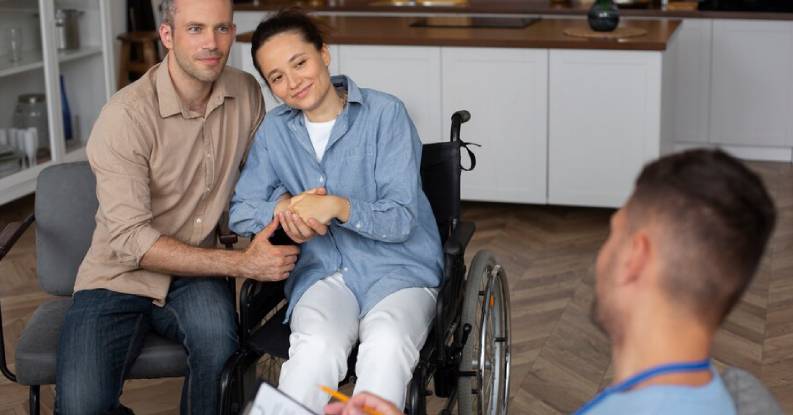How to Get Positive Behaviour Support in My NDIS Plan?
Are you looking to include Positive Behaviour Support (PBS) in your NDIS plan? It is a holistic program that positively influences the way you interact with your loved ones, family, peers and society. PBS benefits participants with developmental disabilities or behavioural issues. It tries to understand why challenging behaviours occur and work on ways to eliminate the underlying causes that trigger them.
This comprehensive approach is based on several factors, including identifying causes through functional behavioural assessment (FBA). It also considers the views of people with disabilities so that their needs can be met in a better way. NDIS behaviour support emphasises proactive skill-building strategies to promote positive behaviour while reducing challenging ones.
Overall, NDIS behaviour support focuses on improving your well-being, quality of life, emotional health and independence. Addressing challenging behaviours through this plan involves:
- Identifying challenges through FBA
- Setting individual-centred goals
- Teaching alternative behaviour
- Promoting behavioural change
- Working with an NDIS behaviour support practitioner
- Positive reinforcement and proactive interventions
- Tracking individual behavioural responses
- Monitoring progress regularly
- Adjusting the measures according to the responses
- Focus on long-term well-being
- Collaborating with caregivers and professionals
- Using ethical practices and strategies
Steps to Get an NDIS Positive Behaviour Support (PBS) Plan
A PBS plan is created in collaboration with family members, caregivers and an NDIS behaviour support expert. Together, they work on a detailed plan to minimise the triggers of the problem behaviour. However, there are certain steps involved in getting this support included in an NDIS plan. Here’s a brief overview of the process:
- Step 1: The first step is to contact your NDIS planner or Local Area Coordinator (LAC) to express interest in PBS. Explain why and how it can improve the quality of life for you.
- Step 2: If you have a recent FBA report, then prepare all the documentation and make it ready for assessment. However, if you don’t have one, then request one from an NDIS behaviour support practitioner. They are qualified psychologists, therapists or behaviour analysts. It is essential to identify the triggers of challenging behaviours you or your loved one are experiencing.
- Step 3: Set clear and meaningful goals for eliminating difficult behaviours and improving quality of life. We recommend working with an experienced NDIS planner or support coordinator. Also, we encourage your family members or caregivers to be present while you are defining your needs and goals.
- Step 4: We also advise forming a team of caregivers, family members, and professionals like therapists and teachers to be involved in the PBS process.
- Step 5: Develop a comprehensive Behaviour Support Plan (BSP) with the help of inputs from your team. The plan should be carefully crafted ensuring it includes various important factors:
- Proactive strategies to eliminate challenging behaviours
- Alternative skills to minimise triggers
- Methods to address various environmental factors
- Step 6: Make sure to review the plan periodically to assess its effectiveness. Also, verify if all the support workers have the appropriate training and are qualified.
- Step 7: Do not hesitate to make changes to the existing PBS plan. Your progress and changing needs will dictate if changes are necessary.
- Step 8: Try and include PBS in the plan during the first consultation with the NDIS planner. This gets you the required help without any delays. Share the evaluation from your therapist or PBS assessment documentation, if needed.
- Step 9: Allocate the appropriate budget for PBS services with the help of a planner or area coordinator. Ensure that the NDIS fund covers assessments, training and ongoing support.
- Step 10: If PBS is approved for you, make sure that the Behaviour Support Plan is implemented effectively.
- Step 11: Maintain detailed records, including points about progress, changes and improvements in behaviour. This makes it easier for future assessments and plan reviews.
- Step 12: During plan reviews, advocate for PBS services so that the support remains as long as you need. Also, share the positive results of the program and mention any plan modifications, if required.
Discuss Your NDIS Positive Behaviour Support Needs With Us
Integrating PBS into an NDIS plan is a no-brainer, especially for participants with behavioural issues. The process needs a collective approach and clear communication with your NDIS planner. If you require such assistance for yourself or your loved one, we can help. Auslife Care is a trusted provider of Positive Behaviour Support in Melbourne. We are committed to helping participants access the services needed to live more fulfilling lives.
We understand the significance of having an effective NDIS Behaviour Support plan. That is why we provide proper guidance to participants for getting such support. Our team will help you include this program in your plan and get the right assistance.
So if you wish to get in touch with our team, feel free to call us on 03 9099 0092 / 03 9221 9232 or email us at info@auslifecare.com.au. We will be happy to answer any questions and discuss the requirements for including Positive Behaviour Support (PBS) in your NDIS plan.

